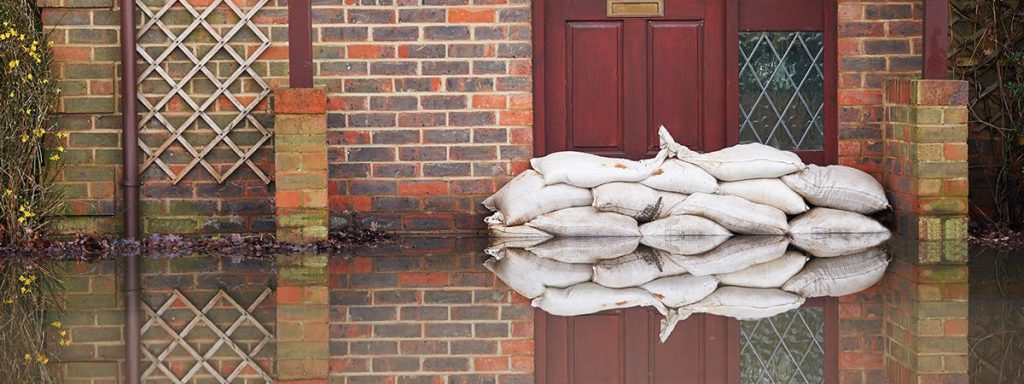Research from the Water, Environment and Communities Group has been instrumental in the development of policies responsible for the uptake of measures which mitigate the damage and disruption of flooding, in thousands of UK homes.
Research summary: Protecting homes at street-level
The Environment Agency estimates a total of 5.2 million properties in England and Wales, or one in six homes, are at risk of flooding. Estimates also suggest that over £220 billion worth of property is potentially at risk of flooding in England and Wales.
To mitigate these risks and help create sustainable housing for the future, a research team led by Professor David Proverbs, have been conducting research into property-level flood resilience interventions that help to limit the damage caused by flooding and also speed up recovery post-flood.
The research has led to improved understanding of the range of technical measures available to help improve resilience and, most importantly, has driven the development of government policy encouraging the use of flood resilience measures by Defra and through the work of the Environment Agency.
Research background: Working directly with victims of flooding
Flood resilience measures can range from the use of bespoke barriers fitted to doors and openings to non-return valves fitted to drains, which prevent floodwater or sewage backing up into the property.
Despite the benefits and government incentives to utilise these measures, studies have shown only 5% of at-risk properties have any such measures installed.
Working with community representatives from the flood-stricken town of Tewkesbury and with funding from Defra, the research team co-designed and tested new technical interventions, which led to an increased understanding of the techniques used to mitigate flood damage and their effectiveness.
The research produced several important findings, including the development of bespoke resilience measures for different house types, which could prove to have cost benefits for residential properties.
Research undertaken for the RICS also found a significant lack of professional expertise to advise property owners on flood resilience, which in turn produced the first clear guidance to professionals.
The research has now expanded to commercial properties and more adversely affected by weather events, such as Brazil, China and Peru.
Outcomes and impact: Policy and practice
The research has driven the creation of BS Standard, a Code of Practice and an Environment Agency National Property Flood Resilience procurement framework. Through these impacts, Professor Proverbs and the team have had a significant impact on the response to flooding in the UK. For example, following the 2015/16 exceptional flooding, 11,000 out of 17,000 flooded properties were installed with property flood resilience measures, making these properties less vulnerable to future flood damage.
The Defra project helped to increase awareness of flood resilient interventions within the insurance industry, leading to the development of new policy for one of the largest loss adjusting providers (Sedgwick) in the UK. Defra has described this research “as one of the most influential flood resilience studies of recent times”. – Policy Adviser, Defra
This has resulted in the installation of flood resilient measures in 85 flood-affected properties and Sedgwick have used the findings as part of their training and staff development for surveyors, to help improve understanding of the practical options for resilience.
Further research by the team has led to international RICS guidance for professionals advising business owners how to protect their property from flooding, and their work has been cited in the UK Climate Change Risk Assessment to underpin government recommendations on the effects of climate change on businesses.




